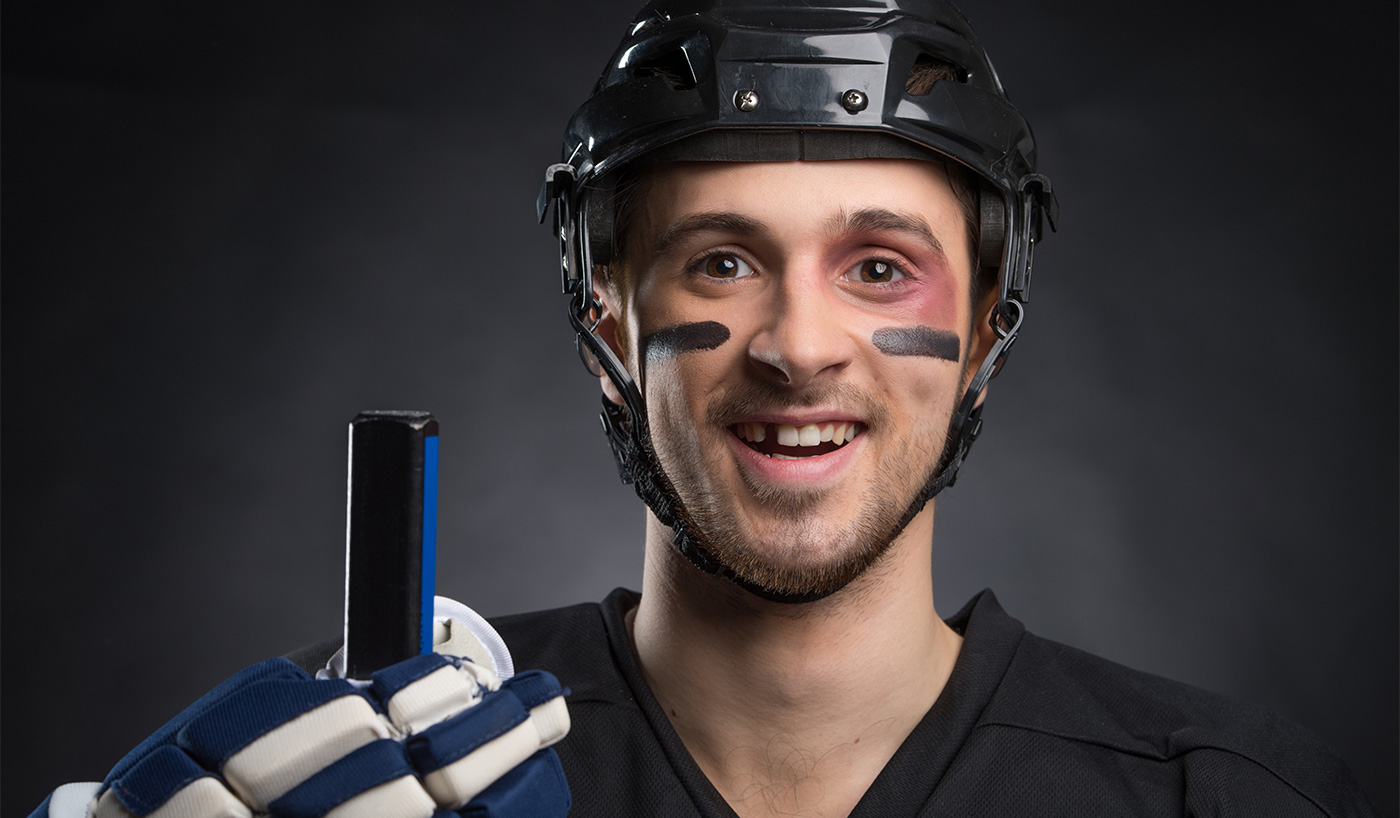Dental sports injuries, particularly in contact sports such as rugby and ball games like cricket and hockey, are increasingly common. Many dental emergencies are a result of oral injury from a sporting event. Adults, teenagers, and children may all experience dental sports injuries.
Dental sports injuries may lead to tooth damage, tooth loss, oral infection, and a loss of confidence. Toothache, jaw pain and oral discomfort may also cause headaches and pain radiating through the face and into the neck and back.
Therefore, treating dental sports injuries as an emergency by contacting an emergency dentist for treatment will enable the injured party to receive the dental care they need for pain relief, tooth restoration and healthy oral function. Serious dental injuries may lead to medical emergencies. At the very least, the injured person should be checked by an emergency dentist if their mouth is injured.
Mouth injuries can affect eating choices, chewing ability, appetite, and word pronunciation for speech. If left untreated, teeth may compensate for the injury by moving out of the natural tooth position, thus resulting in misaligned teeth and malocclusion. Orthodontic care may then be required, but this can be avoided through proper emergency dental care.

Sporting Injuries and Dental Emergencies
An oral injury may not reveal its severity until after a sporting event. However, once an oral injury occurs, it is best to stop the sporting activity and seek emergency dental care immediately. This is partly to prevent further oral trauma and partially to receive medical assessment so holistic care may be provided. A dentist may need to refer an individual to a doctor for further evaluation of their injury.
If an incident occurs during a sporting activity or from physical contact, an emergency dentist should be contacted for treatment within an hour. Having a coach, carer or parent provide care is not a replacement for professional dental assessment and treatment.
Receiving proper dental and medical care for sporting injuries is essential for a healthy recovery from trauma. Typical sports injuries requiring emergency treatment include:
A knocked out or avulsed tooth
A fractured, broken, split, chipped or cracked tooth
A dislodged tooth or teeth forced into the gum line and jaw
Oral cuts to the gums, jaws, tongue, mouth, and lips
Damage to orthodontic devices or tooth restorations
Oral injury may accompany other injuries to the head, neck, back or limbs. Priority should be given to head injuries or concussions and immediate medical care sought. Emergency dental care may follow once the individual’s head injury is assessed for brain damage.
With any injury to the head and face, the injured party should stop the sporting activity to receive a medical and dental assessment. Where teeth are dislodged or lost, an emergency dentist should provide treatment within an hour to try and save the tooth. Keeping the tooth and pressing it back into the tooth socket may alleviate some bleeding and stimulate gum tissue, and doing so may save the existing tooth and dental structure.
Pressing cotton wool or sugar-free gum onto the fractured or broken tooth may help reduce pain and tooth sensitivity caused by inner tooth dentin and dental pulp exposure. Emergency dental care provides relief for the pain, restores the tooth, and prevents dental infection from developing.
Individuals who have experienced an oral injury should not drive themselves to an emergency dentist but rather have someone else transport them or use a taxi. A head injury or concussion may leave them vulnerable to further accidents.
Leaving the oral injury untreated by a dental professional is not recommended as infection may set in. Oral trauma may escalate, normal eating and speaking may be impeded, and dental and jaw disorders can develop. Malocclusion and jaw irregularities can cause other health complications, such as head pain and migraine or pain radiation into the face, neck and back.
Having the severity of the sports injury evaluated by an emergency dentist enables referral to a medical professional, where needed dental treatment to aid healthy recovery can be provided.
Dentists recommend wearing a sports mouthguard to prevent oral injury during sports. These mouth shields are custom-made to fit an individual’s oral dimensions and sporting needs. Sports mouthguards are made of different materials, thicknesses and for different sporting purposes.
Individuals who wear sports mouthguards are less likely to incur oral injuries as their mouth, teeth and gums are protected from harm. Mouthguards are now designed for comfort and to encourage healthy breathing and speaking during wear.
For further information about sports mouthguards and the range of mouthguards available, contact our clinic by phone or email. A member of our friendly team will make an appointment to assess your sporting and oral protection needs. The mouthguard treatments for older adults may differ from those available for young people, but our dentist will explain what mouthguard treatments are most appropriate in each case.
Accessing Dental Care for Sports Injuries
Our 24-hour emergency dental service provides treatments for those in need of urgent dental care, such as dental sports injuries. Individuals may recover from oral injury and improve dental function by receiving needed emergency dental care.
Get in touch